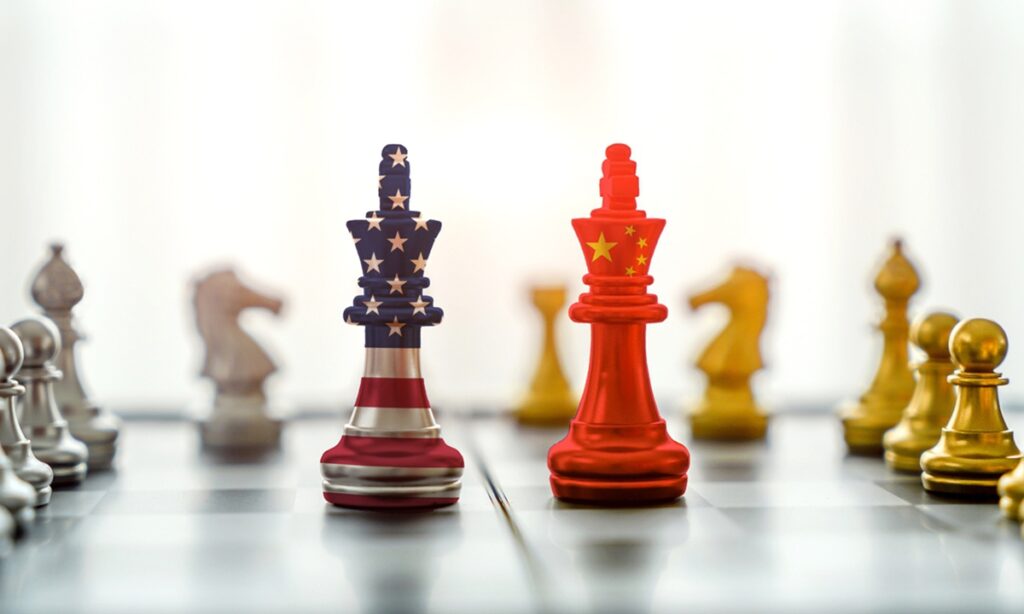US Treasury Secretary Janet Yellen has warned of “disastrous” consequences for the US to decouple from China, while also claiming that the World Bank and the IMF can be used as “an important counterweight” to China.
The remarks offered the latest sign of the US’ two-faced approach toward China, where it seeks to minimize risks and consequences, but continues to intensify its crackdown against China, Chinese analysts said, stressing that the US containment strategy won’t change, even though it has been forced to rethink certain radical tactics and ease tension with China.
Speaking at a hearing of the US House of Representatives on Tuesday (US time), Yellen issued what could be the direst warning of consequences for the US from its attempt to decouple from China.
“I think we gain and China gains from trade and investment that is as open as possible, and it would be disastrous for us to attempt to decouple from China,” Yellen said, according to the New York Times. Adopting an increasingly popular term among Western officials, Yellen said that the US wants only to “de-risk” the relationship.
For years, the US and some of its allies have been seeking to crack down on China economically, and they have publicly touted a decoupling from China. But after failing to achieve that, Western officials have since backed down somewhat by coming up with the phrase “de-risking.”
“Yellen’s voicing opposition to decoupling before the US Congress is not that significant from China’s perspective, because she merely stated a fact recognized by other countries all over the world,” Gao Lingyun, an expert at the Chinese Academy of Social Sciences in Beijing, told the Global Times on Wednesday.
Gao noted that after the pandemic, many US businesses strengthened cooperation with China, which is in line with economic considerations, while casting aside geopolitical calculations. “That should be the norm for bilateral cooperation.”
However, Chinese analysts pointed out that the US’s containment strategy remains intact, and the phrase “de-risking” is just a different name for the same strategy – which is to contain China’s economic and technological rise.
While some dovish US politicians have become vocal about their realization that decoupling is unrealistic and try to erase the word from policy documents and speeches, some hawkish forces continue to push for decoupling under the guise of more moderate terms such as “de-risking,” Chen Jia, an independent analyst of global strategy, told the Global Times on Wednesday.
Such a rethinking of the decoupling strategy comes as the US faces mounting resistance to some of its radical measures and has been forced to back down in some cases. In one of the latest examples, media reports have suggested that US officials plan to roll back strict chip export bans to allow semiconductor firms in South Korea and the island of Taiwan to maintain and expand their operations in the Chinese mainland.
However, even as US officials have repeatedly stated that they are not seeking to decouple from China, they have continued to step up crackdowns on Chinese tech firms. The US government on Monday added 43 entities, including 31 in China, to its export control list, known as the “Entity List,” accusing these entities of providing training to Chinese military pilots and other activities that threaten US national security.
China’s Commerce Ministry on Wednesday slammed the move and demanded that the US correct its mistake immediately and stop unreasonable crackdowns on Chinese firms.
Also highlighting the US’ continued hostile approach toward China, during the same speech before the US Congress on Tuesday, Yellen said that institutions like the World Bank and the IMF “reflect American values” and could serve as “an important counterweight to nontransparent, unsustainable lending from others like China.”
The remarks drew firm rebuke from the Chinese Foreign Ministry on Wednesday. Wang Wenbin, a spokesperson for the ministry, said that the World Bank and the IMF are multilateral financial institutions that reflect the trend toward greater democracy of international relations and promote international cooperation on the basis of fully reflecting the interests of all member states, while urging the US against bringing geopolitical confrontation into multilateral financial institutions.
Chinese analysts pointed out that the US continues to step up its crackdown against China, even as US officials are seeking dialogue with their Chinese counterparts, which shows how insincere US officials are.
Chinese State Councilor and Foreign Minister Qin Gang on Wednesday held a phone conversation with US Secretary of State Antony Blinken, urging the US to take concrete actions to implement the important consensus reached by the two heads of state at the Group of 20 Bali summit, and honor the relevant commitments the US made.
Blinken is scheduled to visit China from June 18-19, according to an official announcement on Wednesday.
(Global Times)




